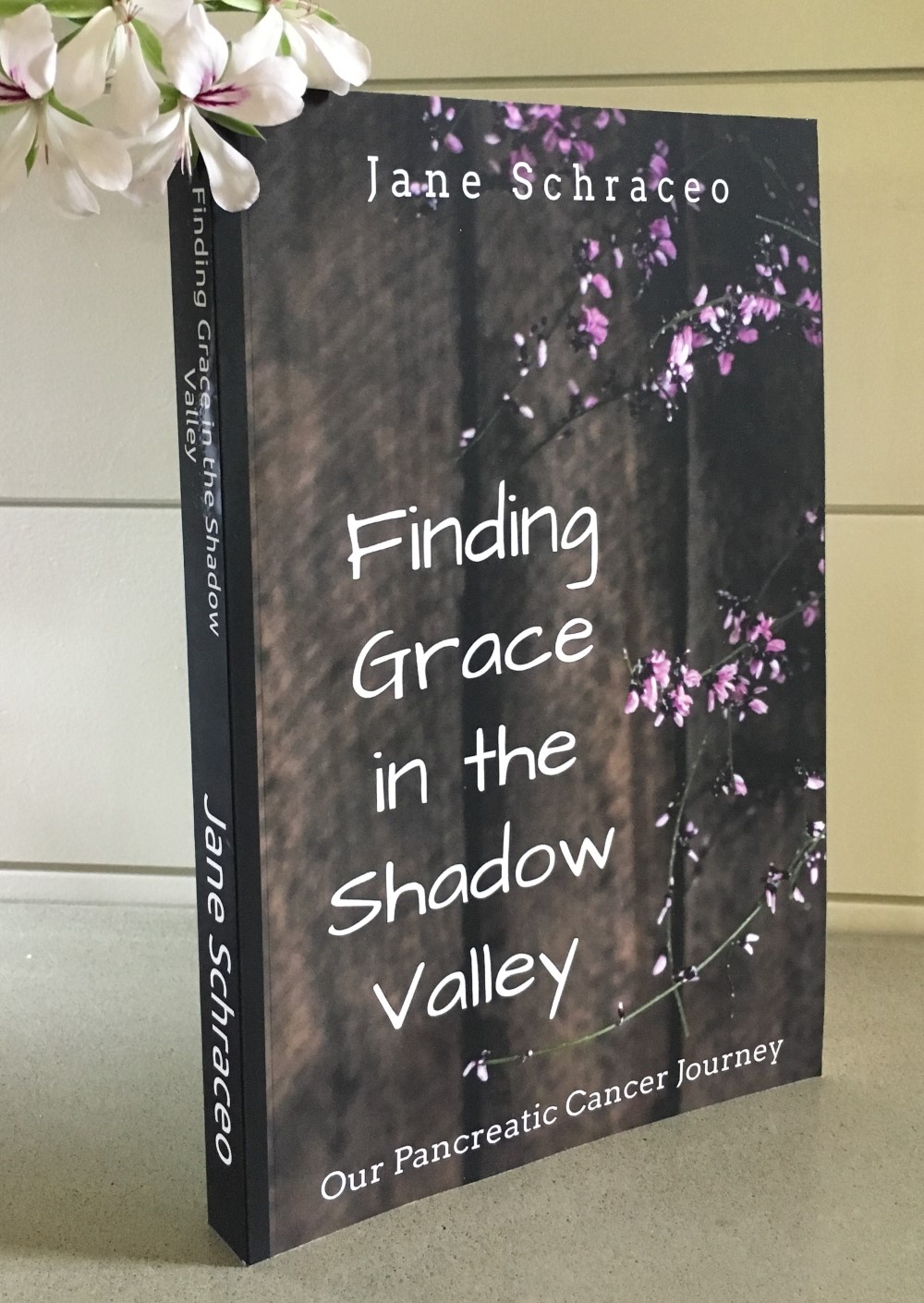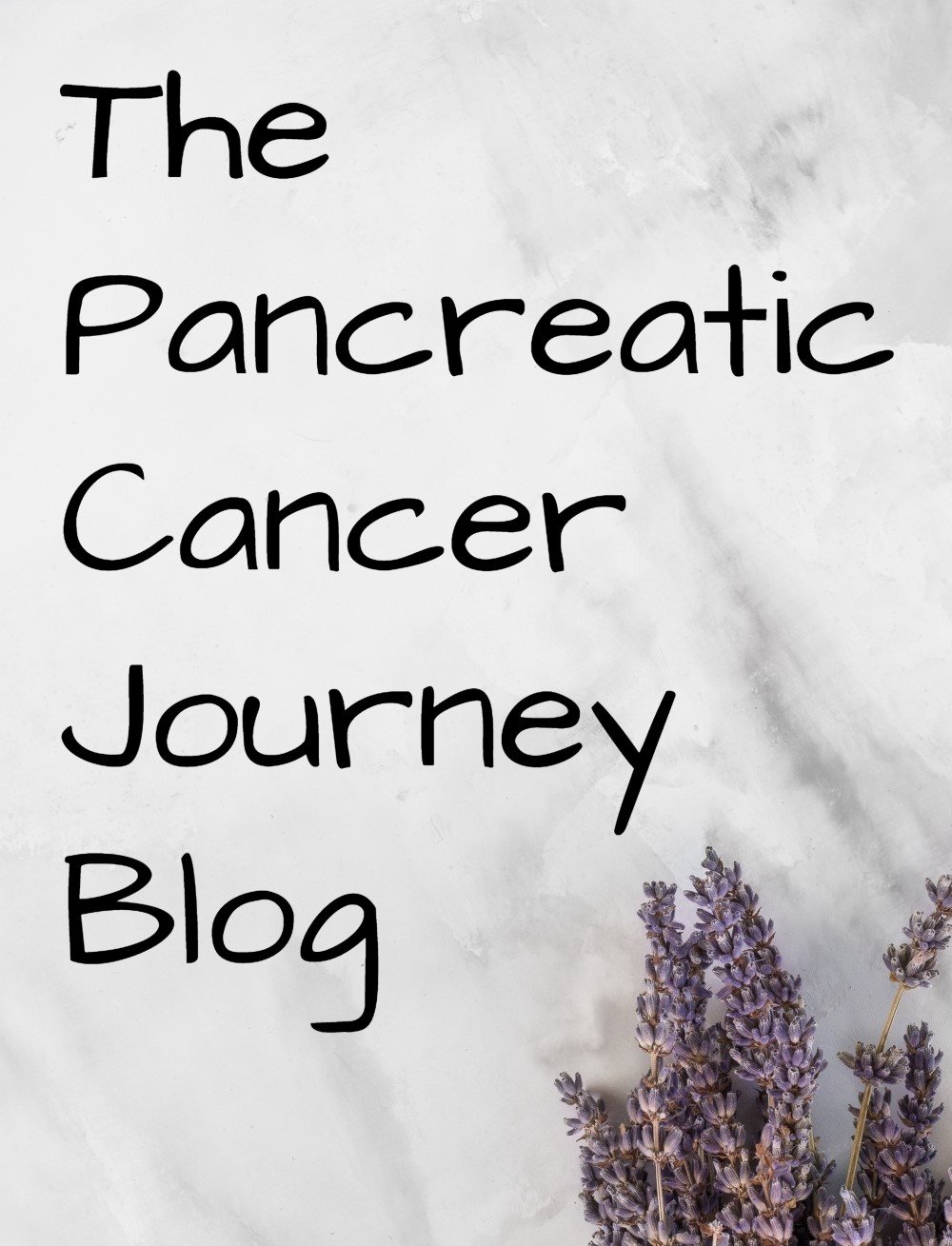Becoming a Pancreatic Cancer Caregiver
There's an old saying that "Life happens while we are busy making plans."
That seems to be a pretty fair accounting of how Dad was blindsided with the role of pancreatic cancer caregiver.
Before the pancreatic cancer diagnosis, mom and dad were indeed busy making plans and even busier realizing those dreams:
Enjoying TransAtlantic Ocean Cruises
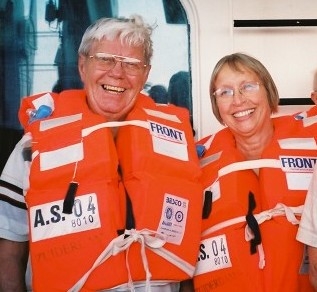
And... Painting the Town Red
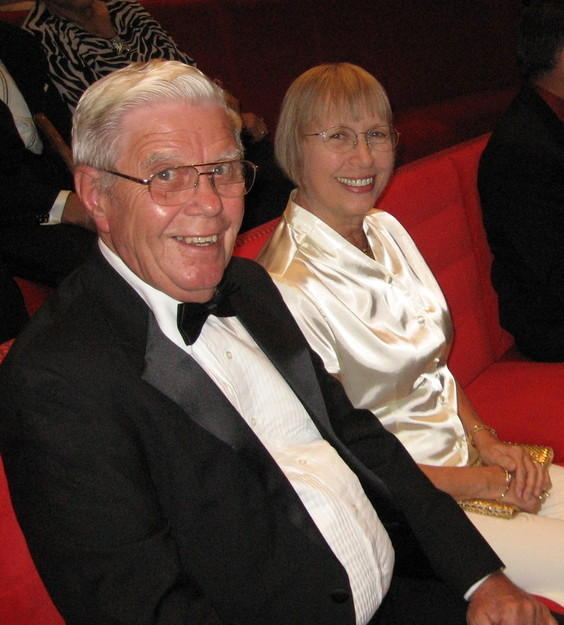
The smiles and laughter of life well-lived.
Then, BAM... Pancreatic Cancer reared it's ugly head.
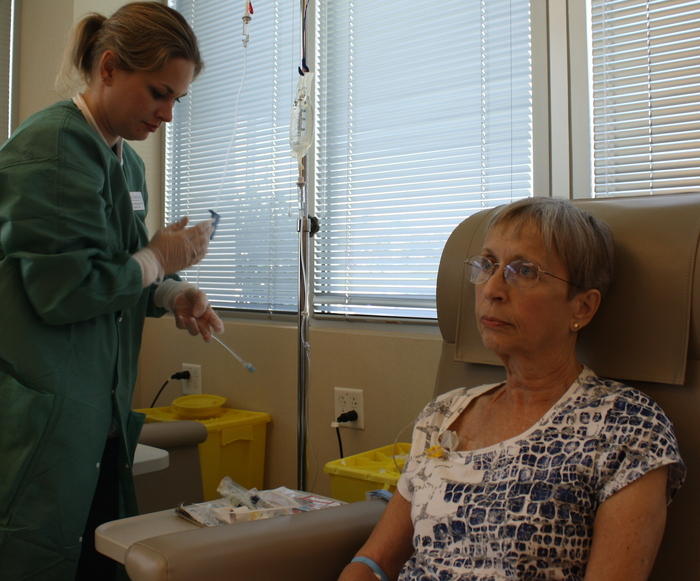
Life now revolves around doctors, hospitals and treatments.
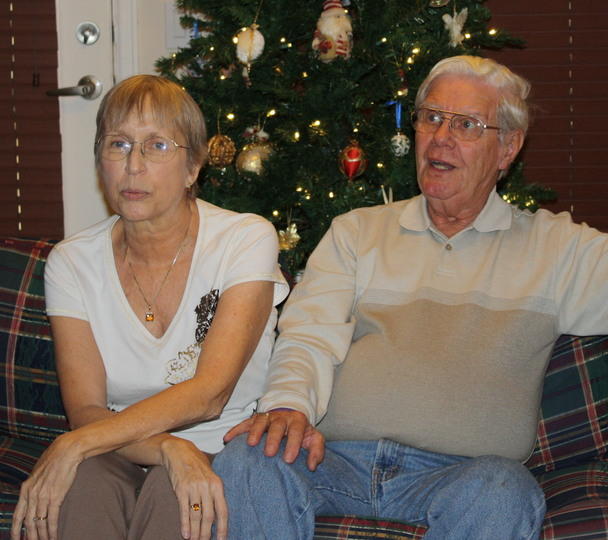
Smiles are more tentative, laughter more fleeting.
Mom became the cancer patient. Dad the cancer caregiver.
Cancer not only affects the patient, but all those who love and care about them. We who are closest find ourselves with new roles to play. We become the cancer caregivers.
And we do it out of love, commitment and loyalty.
That doesn't make it easy.
Oh, there are some perks:
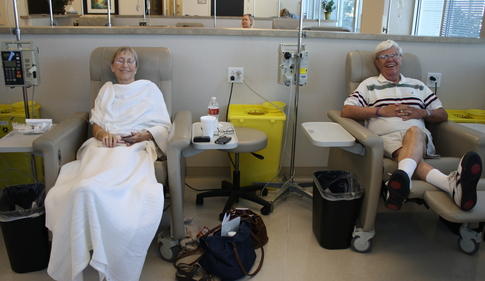
Recliners,
and...
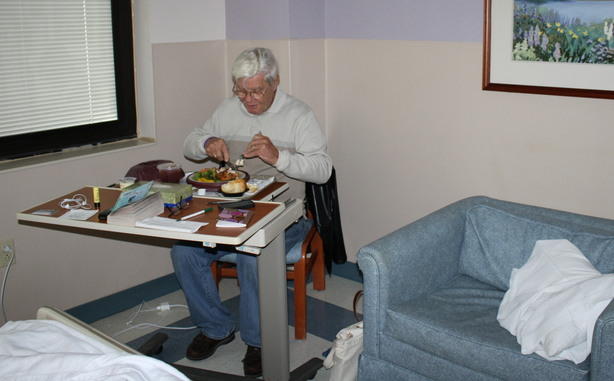
Fine Hospital Dining!
But, seriously, there have been major adjustments as we've come to terms with mom's illness and limitations. We've all pitched in to help, but the burden has fallen squarely on Dad. He is mom's best friend, confidante, cook, errand-runner, encourager, pill-pusher, toilet cleaner and appointment keeper.
As we travel down the road on our pancreatic cancer journey, we've discovered a few things about ourselves, especially in relation to caregiving. It was not smooth sailing in the beginning. We struggled to find our places. Mom had always been at the helm, in charge, making decisions and generally keeping the family happy, healthy and whole. Now, it was our turn to repay her for a lifetime of care.
I recently came upon an article that helps explain the progressive role of caregiver to the cancer patient. Written by Carolyn McIntyre, it describes the 3 stages of Caregiving. I can easily apply this to our journey as cancer caregivers.
1. The Early Stage: Surprise, Fear, Denial, Confusion, Sadness
Basically you deal with the question, What is happening to my loved one? Very few of us will have had any previous experience with pancreatic cancer. So the diagnosis alone elicits surprise, fear and often denial. Immediately life as we know it begins to change.
Your family, which has been molded by routines and roles that have been solidified with time, might be in a state of disorganization, even chaos. The “normal” ways the family has taken care of itself can no longer continue, and new roles will emerge.
First, the siblings and spouse of the loved one begin to sort through who is available to provide care, to become the cancer caregiver. This phase can go smoothly if all are in agreement about who is going to take on more responsibility, but it may involve conflict. Long-standing family tensions may surface. Still, it’s crucial that family members ask themselves: What does our loved one need? You shouldn’t underestimate the challenge.
This is the time where the family becomes educated about pancreatic cancer, treatments, surgeries, and life expectancies.
This step of becoming educated, and getting an accurate diagnostic work-up, is essential. During this time, it’s normal to hear a spouse and siblings offering different views of the illness and ways of handling it. Generally, those closest to the relative, or those spending the most time with the person, tend to assess the severity of the illness faster that those who are less involved or living farther away.
Families mobilize help faster and reorganize more easily when they can confront their denial about the seriousness of the illness. A family that gets stuck at this point, however, should seek outside guidance from experts and organizations. The best outcome occurs when everyone chips in, researching literature, organizations, and Websites that could be helpful, and sharing this information with each other.
Because we experience emotional pain and loss at hearing the cancer diagnosis, confronting denial about this illness is sometimes the hardest step. And remember, the loved one with cancer is also experiencing their own sense of emotional, as well as physical pain over the diagnosis. They may be at a total loss on what to do next, and need the help and advocacy of a cancer caregiver more than we realize.
2. The Middle Stage: Frustration, Guilt, Resentment, Conflicting Demands
Here, you may begin asking the question, How long does this last?
By now your family has confronted the initial denial and negotiated relationships so it is clearer to each member who is providing most of the caretaking tasks and how the tasks are divided up. The discussions about whether the relative needs help have given way to paying more attention to the increasing demands. However, if you are the primary caregiver and do not have the support of other family members, tension and conflict will continue. Usually, through, your loved one has become more accepting of help, and new family routines will have evolved.
This is also the point where the major cancer caregiver begins to feel the weight of the responsibility, giving up time spent with friends and family, and on hobbies, recreation, and other activities. Often caregivers have to step off the fast track at work in order to keep up with the multiple roles. Resentment can easily creep into the cancer caregiver's attitude.
3. The Late Stage: Sadness, Guilt, Surrender, Regrets, Relief, Solace, Closure
The question at this stage is How do I respect the needs of my loved one?
By now, as your loved one is in decline, you will have solidified your role of advocate. This can be especially significant as you deal with hospitals, hospice or nursing homes. You may encounter staff who at times convey an overpowering attitude. Here, patience and a steadfast commitment to the loved one becomes paramount.
It's also during this stage that questions of quality of life versus longevity also will need to be broached by sensitively finding out a person’s wishes. If the family has planned ahead, legal documents might already be in place to support these difficult decisions. Hospice care is valuable in assisting the loved one and the family in providing a loving environment for the last moments of life.
Family caregiving is about a relationship between many people. It helps to recognize that you are only one member of the caregiving team. We all have strengths in different areas and we need to learn to play to these strengths.
I have been available to help the most because I don't work outside of the home. My brothers have offered there considerable talent planning weekend events, dinners, movies, as well as phone calls, and playing lively games of Words With Friends with mom through the internet. But my Dad has truly borne the brunt of the daily caregiving.
We rely heavily on the Caregiver's Bill of Rights as we navigate this new path along the journey.
The National Family Caregivers Association has also developed this "Caregiving Is" list to give you an idea of just how varied and complex family caregiving can be. It succinctly descibes our "lifestyle" adjustment over these past months with pancreatic cancer and how we've taken on the role of cancer caregiver:
1. Caregiving itself is a multidimensional puzzle. For some it means providing 24-hour care. For others caregiving is an emotional roller coaster because a diagnosed condition has not exhibited debilitating symptoms—yet.
2. Caregiving can go on for a few years or for a lifetime. It means re-evaluating finances, re-evaluating job opportunities, and making compromises.
3. Caregiving is learning how to work with doctors and other health care professionals so they treat you as an important member of your loved one's healthcare team.
4. Caregiving is worrying about what's wrong with Mom. Why is she jaundiced? Why is she in pain? And then when you hear the diagnosis, your immediate reaction is you wish you had never asked.
5. Caregiving includes learning about blood counts, chemotherapy, radiation, and tumor marker tests.
6. Caregiving is wondering why no one ever asks how you are.
7. Caregiving is dreaming about being alone in your own house.
8. Caregiving involves learning about Medicare, Medicaid, social security, and other public programs.
9. Caregiving is learning what it means to die with dignity and making sure that your loved one's wishes will be honored.
10. Caregiving is the joy you feel when your spouse says he/she felt good today.
11. Caregiving is hard work. Caregiving is pain. Caregiving is loving and giving and sharing. Caregiving is accepting and learning new things and going on, and on, and on. Caregiving is lots of questions and very few answers.
Caregiving is all these things and a whole lot more.
I'm sure you can add your own thoughts to the list. The longer we journey as cancer caregivers, the more we learn about ourselves, about compassion, and about love.
Caregiving is Love in its most sacrificial form. And Dad is our Hero for being the Best Cancer Caregiver to grace this earth.
Return to Home Page from Pancreatic Cancer Caregiver
Copyright © PancreaticCancerJourney.com
Nothing on this website should be construed
to constitute medical advice.



